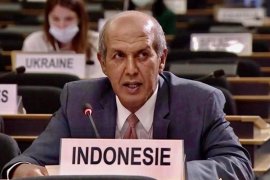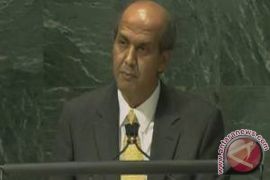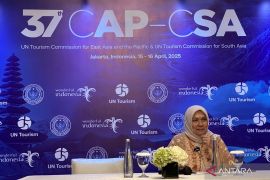Ambassador Hasan Kleib told ANTARA here Saturday that he was nominated as a candidate by the Asian Group representing 54 countries in the region.
The decision to appoint Kleib was taken in the 44th Session of CPD which was held in New York from April 11 to 15, 2011.
As the CPD chairman, Hasan Kleib will chair a series of CPD meetings until late 2012, having "Adolescents and Youth" as the theme.
Following his appointment as the CPD chairman, Hasan Kleib said that Indonesia paid a special attention to the development and population issues discussed in UN fora.
"CPD is a forum for developing countries and economies in transition to get support in the population policy," he said.
The CPD agenda in 2012 focusing on youths reflected the common concern of developing countries including Indonesia, regarding efforts to improve the capacity of youths -- the largest group in population composition.
Kleib considered the CPR position as strategic for Indonesia and other developing countries.
"By leading the CPD, the chance for Indonesia and other developing nations to include issues of our interests is bigger," he said.
Meanwhile, the head of the Indonesian delegation in the 44th Session of CPD, Sugiri Syarif, in his presentation during the session underscored the vital need to enhance financing, strengthen policy and improve service delivery in addressing challenges related to sexual and reproductive health.
Legislation had recently been passed to address the country`s high fertility rate and the low health status of its population, he said.
That commitment had resulted in the decline of Indonesia`s total fertility rate from 5.6 in 1970 to around 2.3 today. Additionally, the infant mortality rate had declined from 142 deaths per 1,000 live births in 1971 to the current 34 deaths per 1,000.
Such achievements were already evident, as Indonesia had been ranked eighteenth in the world economy in terms of gross domestic product, he said.
However, Indonesia still faced a number of challenges pertaining to maternal mortality and HIV/AIDS, he noted.
Its maternal mortality rate remained high, but was gradually falling, while the rate of HIV infection was low but undergoing a relatively high rate of increase.
Continuing efforts in those areas would entail raising the quantity and quality of health-care services and enhancing community participation, he said, recalling that in January, the Government had approved a policy to fully finance ante-natal care, properly skilled birth attendants, post-natal and newborn care, as well as family planning services provided by 23,500 family planning clinics serving poor families and those in remote areas.
Indonesia had also agreed to bilateral cooperation with several countries in the field of reproductive health, he said.(*)
K-TNY/HAJM/F001
Editor: Jafar M Sidik
Copyright © ANTARA 2011








